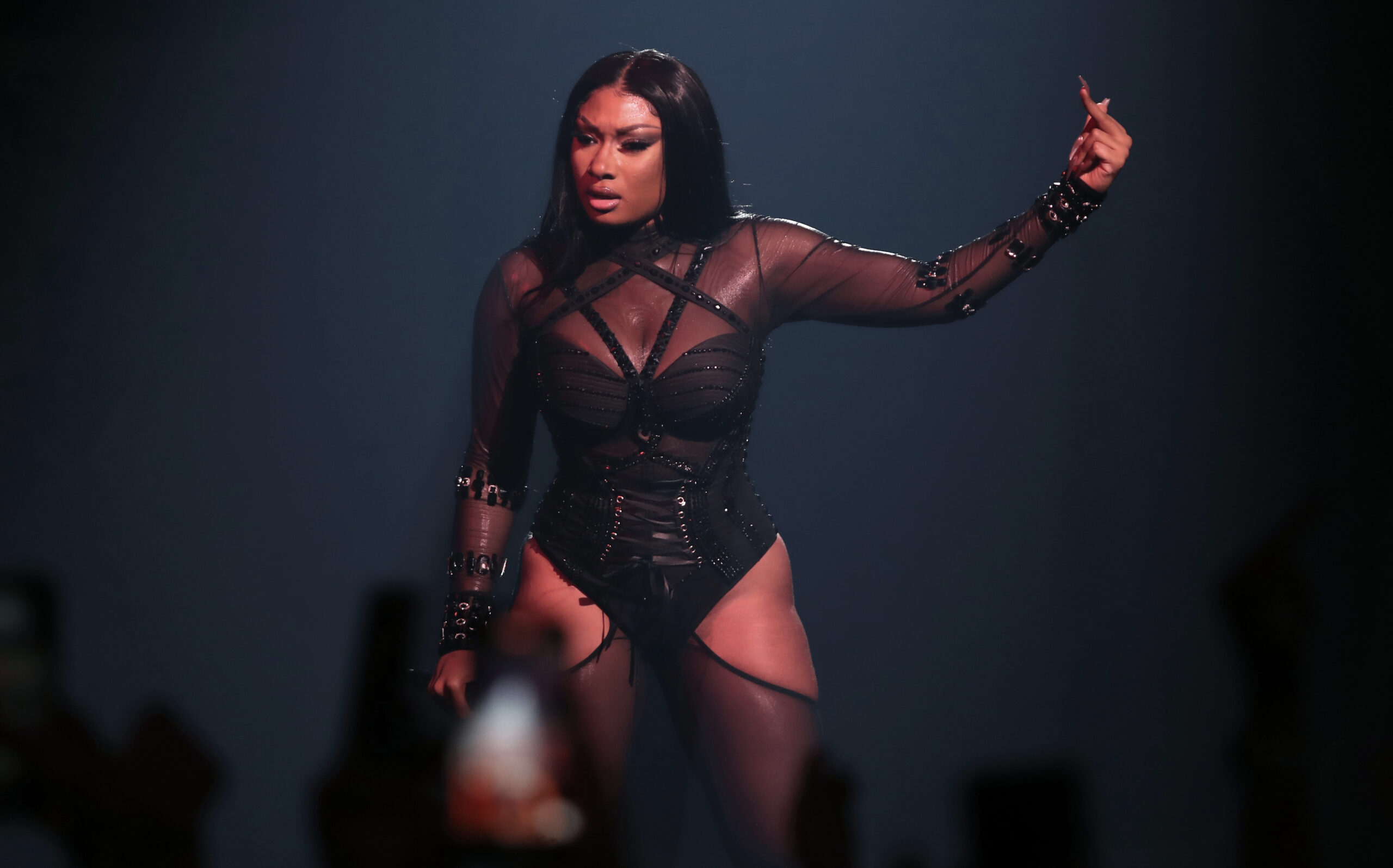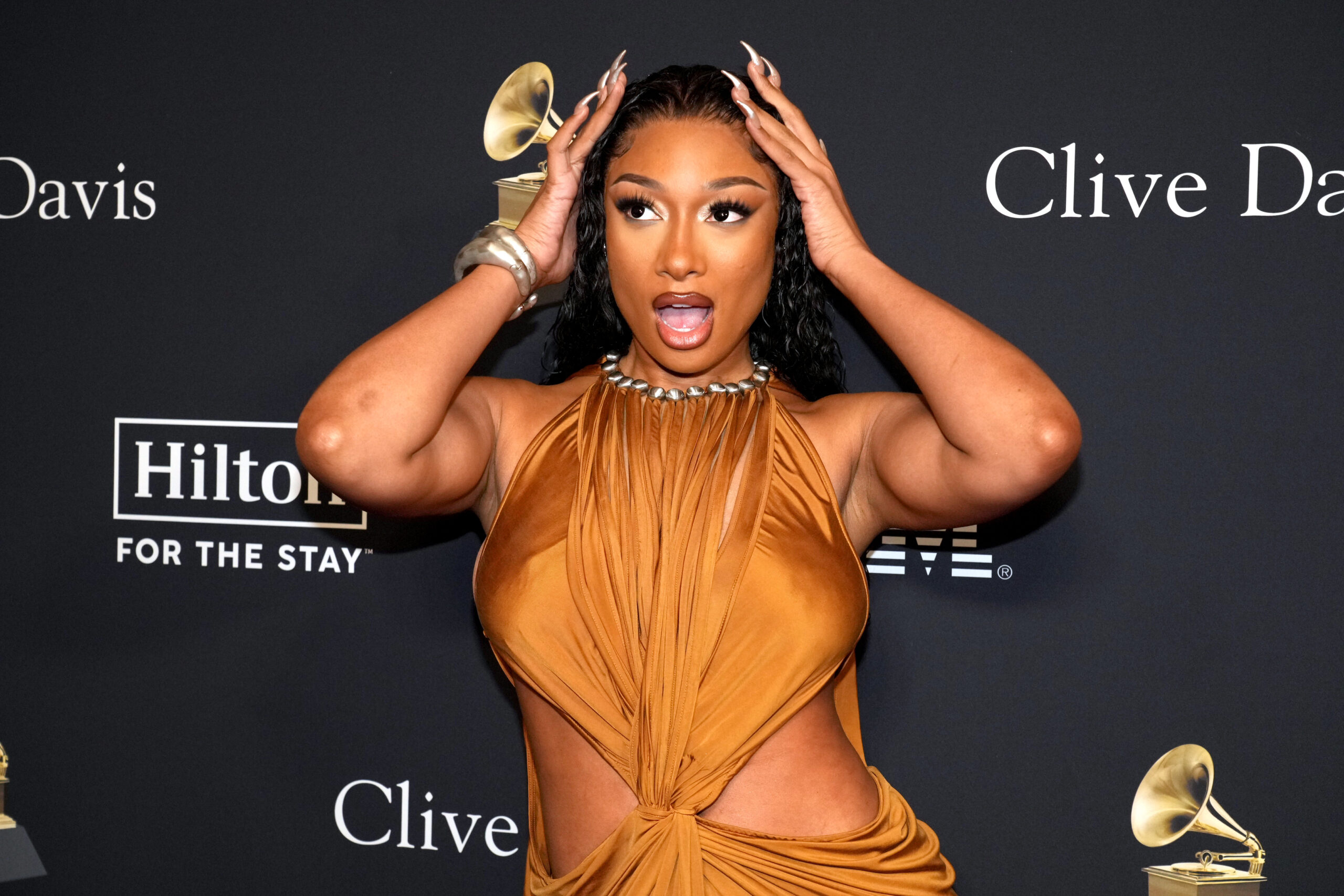Megan Thee Stallion is a prime example of an artist propelled quickly into mainstream consciousness. For years, she gained a reputation for her formidable lyricism through freestyles that helped her develop a cult-like following in a post-Cardi B era of rap music. 2018’s Tina Snow and 2019’s Fever confirmed what all her day-one fans knew from the jump: she’s a star. However, her approach to mainstream success felt contrived, especially after the release of “Hot Girl Summer.” The charm of Houston’s Southern belle seemed watered down to appeal to a broader audience.
The whirlwind journey she experienced in the past few years has raised questions about the sustainability of her career. Despite becoming a critical darling, Good News and Traumazine, were easily overlooked. In many ways, they showcased Megan’s strengths, but external factors, including her legal battle with 1501 Certified Entertainment and the Tory Lanez trial, eclipsed her accomplishments to the point where her music became secondary. Her presence felt more prominent in corporate sponsorships than as an MC, as seen in her collaborations with Nike and Planet Fitness.
Read More: Megan Thee Stallion Essential Songs
Megan Thee Stallion Returns With Vengeance

This brings us to Megan, her third studio album and, more importantly, her first as an independent artist. For the first time, it doesn’t feel like there’s any added weight on Megan outside of finding her own comfort as an artist. In fact, this feels like Megan’s most realized vision on wax. She’s unapologetic, confrontational, sexy, and dominant all at once, even during a few missteps on the project.
“HISS” encapsulates her attitude in its brief intro. The diss song itself undoubtedly set the tone for the resurgence of rap beef in 2024. “I just want to kick this shit off by saying, Fuck y’all! I ain’t gotta clear my name on a motherfuckin’ thang,” she declares. “I’m finna get this shit off my chest and lay it to rest.” While everyone from Drake and Nicki Minaj to Tory Lanez and Akademiks catch strays (as well as her ex Pardison Fontaine), she persists on subsequent records like “Rattle” and “Figueroa” (“I’m a mothaf*ckin’ Brat, not a Barbie”). It’s on these three songs that Megan sounds the most invigorated as an MC – her refined flows and electrifying deliveries immediately command attention, but that momentum quickly dies down in subsequent efforts.
“Where Them Girls At,” equipped with trunk-rattling bass and a Memphis-esque vocal sample on the hook, is anthemic and likely to dominate the summer (perhaps with a TikTok push, it could crack the top 10 on the Hot 100). However, it sounds like something Megan’s done more effectively in the past. The tracklist suffers a bit of a decline from this point onward.
Read More: Megan Thee Stallion Gets Freaky On NSFW New Track “Down Stairs DJ”
The Versatility Of Megan

Songs like “Broke His Heart,” produced by Tay Keith, take on a sample of Jeezy’s “I Luv It” but fail to do the original justice, largely because it popifies a trap classic. Though it’s one of the several efforts that affirm the message of women’s empowerment, especially in the context of her highly publicized break-up, it fails to penetrate similarly to the tracks leading up to that song. Unfortunately, the use of classic samples across this album doesn’t seem to have any point outside of familiarity. “BOA” suffers the same fate with its sample of Gwen Stefani’s “What You Waiting For?” This issue isn’t limited to Megan Thee Stallion or her album; it’s prevalent in the music industry. At a time when it’s easy to distinguish a hit record from a TikTok record, these sorts of samples seem aimed at feeding into algorithms more than the people’s wants.
The consistency Megan initially kicks off starts to fall flat in exchange for a flagrant showing of versatility. Songs like “Otaku Hot Girl” and “Mamushi” ft. Yuki Chiba are compelling leaps into her anime fandom and attempts to help her crossover to international markets. It’s effective for what it’s worth, but without maintaining cohesion across all 18 tracks, it deviates from the essence of what she started with this project. Yuki Chiba and Megan share fantastic chemistry on “Mamushi,” which even sees the Houston star rapping in Japanese. However, it feels oddly placed in the tracklist.
Waving The Flag For The South: GloRilla, UGK, Big K.R.I.T & More
The middle chunk of the album feels like filler, especially once the back half of the project hits. Megan’s strongest points accentuate her identity as the leading lady of the South. The production, especially Juicy J’s contributions (“Paper Together” ft. UGK, alongside Go Grizzly & “Moody Girl” alongside Hitkidd), is smooth, soulful, and slightly smoky, providing equal measures of grit and seduction. These peaks on the project feel like full-circle moments for Megan, especially the UGK feature and a posthumous verse from Pimp C – Meg’s favorite rapper and the inspiration behind the Tina Snow persona. However, it’s the inclusion of UGK, GloRilla (“Accent”), Big K.R.I.T., and Buddha Bless (“Miami Blue”) that breed a comfort zone for Meg without complacency. It’s a clear display of her musical lineage, embracing peers like GloRilla while properly honoring the legends that preceded her.
Throughout the hardships Megan has faced over the years, her resilience has remained one of her most inspiring qualities. On Megan, it takes center stage in its brightest form. Despite the string of hate she faced as a shooting victim, her struggles to get out of her contract, and witnessing the tables turn against her among those who once embraced her, Megan Thee Stallion rises above the adversity and delivers an album that encompasses self-love in the face of overt — and often misguided — criticism. Sure, the tracklist could have been more succinct, and a few filler tracks could have been easily removed. But overall, Megan delivers a body of work that truly showcases her capabilities as an artist and shows some interesting signs of where she might head next.
The post Megan Thee Stallion “Megan” Review appeared first on HotNewHipHop.
